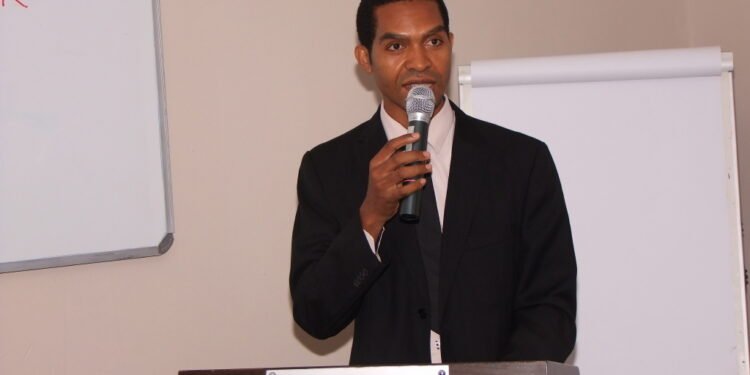March 22 2025
Nshindano warns against rushed delimitation
By Mast Reporter
FORMER Electoral Commission of Zambia (ECZ) chief electoral officer Kryticous Nshindano has warned that with the general elections looming, rushing the delimitation process could lead to unintended consequences, such as disenfranchisement, legal challenges, and a loss of public trust in the electoral system.
Nshindano said yesterday that it was imperative to prioritize stability and allow the current framework to remain in place until a more suitable time presents itself for comprehensive constitutional review and implementation.
His comment comes amid a “burning” debate on whether or not there is need for the Constitution to be amended before the country goes to polls next year.
However, Nshindano argued that delimitation is a cornerstone of democracy.
Nshindano said delimitation ensures that each vote carries equal weight and that no community is left behind.
He explained that when boundaries are drawn thoughtfully, they reflect the unique identities and needs of the people within them.
“For instance, a well-defined ward ensures that your local Councilor understands the specific challenges your community faces, from access to clean water to the need for better schools. Similarly, a properly delimited constituency means your Member of Parliament can effectively advocate for your area’s interests in the national assembly,” he said. “As I conclude, imagine you’re a voter in a rural community in Zambia. The nearest polling station is miles away, and the boundaries of your constituency seem to stretch endlessly, lumping together communities with vastly different needs and priorities. This is where delimitation steps in, it’s not just about drawing lines on a map, it’s about ensuring that every voice is heard and that representation is fair and meaningful.”
Nshindano nevertheless warned that delimitation is not without its challenges as highlighted above.
He said it requires a delicate balance between population size, geographic considerations, and community cohesion.
Nshindano added that the process could become politicized, with boundaries drawn to favor certain parties or groups.
“This undermines the very purpose of delimitation and erodes trust in the electoral system. In my view, delimitation is more than just a technical exercise; it’s a reflection of our commitment to democracy and inclusivity,” he said. “It’s about making sure that every Zambian, whether in a bustling urban center or a remote rural village, has an equal opportunity to participate in shaping the future of our nation. When done right, delimitation strengthens our democracy and brings us closer to the ideal of true representation.”
Nshindano also said that “the next time you hear about electoral boundaries being redrawn, or let us amend the constitution because we need to delimit, remember, it’s not just about lines on a map.”
He explained that it is about people, communities, and the promise of a fair and inclusive democracy.
“And that’s something worth fighting for. Bearing that in mind, the question before Zambians is whether amending the constitution for delimitation is appropriate just 16 months before the general elections,” he said. “Delimitation as highlighted is a complex and time-sensitive process that requires thorough planning, public consultation, and meticulous execution to ensure fairness and credibility.”

























